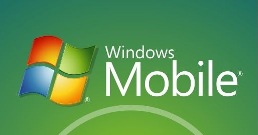I like Windows Mobile and am not ashamed to admit it


If you just look at the specs, Windows Mobile may be considered the most powerful and functional platform out there (S60 also may take this title). However, as Microsoft is learning it is not just about the specs, but today people want the overall user experience to awe them. Honestly, HTC and Samsung are working to bring this type of experience to people, but the message just doesn't seem to reach people like it does with the iPhone.
There are some incredibly powerful, diverse, and fun devices available in the Windows Mobile world, including the HTC Touch Pro, Samsung Epix, HTC Touch HD, Treo Pro (my current favorite device), Samsung OMNIA, Blackjack II, T-Mobile Dash, and many, many more. IMHO, one of the strengths of the Windows Mobile platform is that there are devices available in all shapes and sizes so that everyone can be satisfied. And as a mobile phone enthusiast, I love that I can dive into the details of the operating system and tweak away to my heart's desire.
Then again, the sheer number of devices may also be a weakness because there is no central way that the platform is being marketed. Apple and Google have it fairly easy with a single device to promote from a single manufacturer. Almost all S60 devices come from Nokia so even though there are a number of different models, there is a single company name behind them all. With Windows Mobile you have manufacturers (like HTC, Samsung, and Palm) and wireless carriers (like Orange, AT&T, Verizon and T-Mobile) that have branded devices so it is extremely challenging to get out a consistent message. Microsoft also changed the naming scheme from a more consumer-friendly Pocket PC or Smartphone to Windows Mobile Smartphone that just doesn't have the same ring to it. I think Microsoft can do a much better job of marketing some of the incredible strengths of the platform and maybe they should focus on things like Exchange support (for enterprise customers) and smart dialing (for consumers).
Windows Mobile has been around for quite a while and in the beginning (2000) the devices were buggy and unstable. I can honestly say that almost all the devices I have been using the last couple of years have been rock solid. I can count on one hand how many times my Windows Mobile devices (among them the T-Mobile Dash, T-Mobile Shadow, Treo Pro, HTC Touch Diamond, and HTC Advantage) have soft reset on me and I constantly check out new 3rd party applications and push the limits of my devices. I do find the non-touch screen devices to be a bit more responsive (except for my Treo Pro) and stable than the touch screen devices, but my experiences indicate stability and reliability is no longer an issue. However, this stigma still seems to be attached to Windows Mobile and is thrown around like a fact years later.
I also think Microsoft should have been the first to come out with a hosted Exchange option for consumers, just like BlackBerry has with its BlackBerry Internet Services for consumers or BlackBerry Enterprise Services for businesses. Microsoft could have done the same thing back when Exchange ActiveSync support was provided and consumers could have had a "BlackBerry-like" experience right out of the box when picking up a Windows Mobile device from a wireless carrier. Today, the iPhone has this with MobileMe and the G1 has this with Google, but Microsoft still should consider this even though some may say they are copying others. Nokia is moving this way with their Ovi initiative and it isn't too late to show consumers they can remain connected with a Windows Mobile device.
A new Windows Mobile site has launched called Windows Mobile Developer Network and shows you upcoming events, featured applications, Windows Mobile team websites, and featured content articles along with a bunch of other content that helps people use their device to the fullest. The site is designed to aid developers in bringing applications to Windows Mobile, but is also useful for just about any WM user. The Windows Mobile Catalog page is a nice way to browse some of the thousands of applications available for Windows Mobile devices and links to multiple vendors so you have a single consolidated location to see what is out there. Creating a site like this for consumers that is promoted in the box, along with a hosted Exchange service could help Microsoft reach more people with Windows Mobile.
As far as the enterprise user goes, I prefer and use my Treo Pro with my new work Exchange server and absolutely LOVE the experience and functionality. Some people may call me crazy, but I actually prefer using my Treo Pro to interface with my Exchange account (creating appointments, adding contacts, and checking email) rather than using Outlook on the desktop most of the time. Windows Mobile should be dominating the enterprise market and it would be interesting to see study results looking at mobile devices in businesses rather than across the entire spectrum of the mobile community.
I also enjoy using 3rd party applications on my Windows Mobile devices that allow me to work and play both online and offline. There are applications to meet just about every need out there and I do not have to make any compromises with software or connectivity with the latest Windows Mobile devices. Pair a Windows Mobile device with a REDFLY and you even have a powerful mobile computer where the display and keyboard sizes don't really limit you anymore.
I also like using devices running S60, but find the PIM and email experience to be superior on Windows Mobile devices. If multimedia creation is a major factor in your purchasing decision, then S60 is definitely the winner in this category. There is also a failure to market S60 successfully in the U.S., but that may largely be driven by carrier support and I'll save more thoughts on S60 for another post.